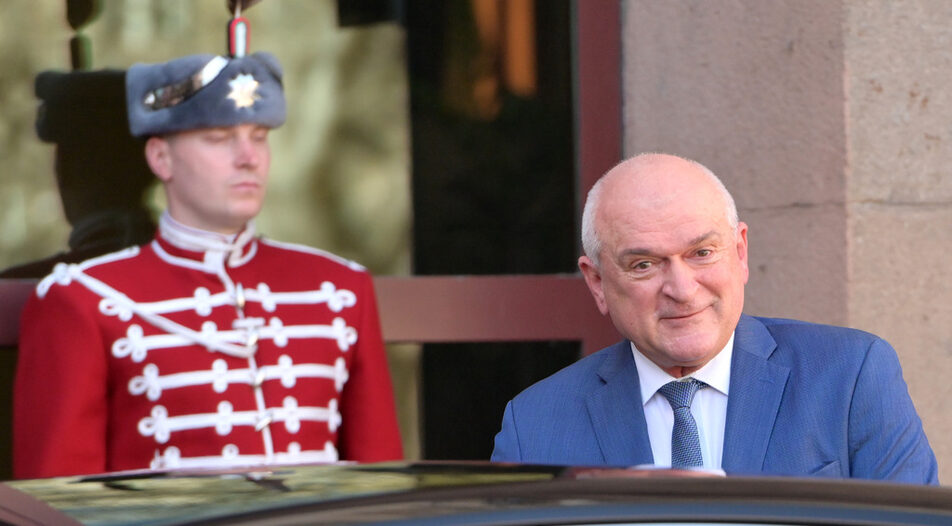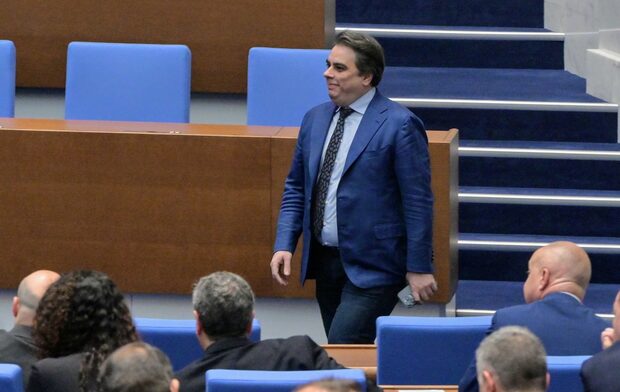The road to hell is indeed paved with good intentions. About a year ago, when WCC-DB proposed revamping the caretaker cabinet institution as part of the constitutional changes, it appeared to be a minor yet significant adjustment aimed at curbing President Rumen Radev's unchecked powers during periods of political fragmentation and turmoil. However, now that their former (and probably future) partners from GERB have disrupted the delicate balance in pursuit of a larger share of power following an early election, the alterations to the caretaker cabinet have come back to haunt the reformists.
The newly appointed temporary Prime Minister, Dimitar Glavchev, has a long history within the GERB party. Although he initially pledged to form a technocratic and neutral cabinet, it's likely that he will remain loyal to his old faction. Furthermore, his appointment faced controversy due to the inadequately crafted constitutional changes, which left him (and his deputies in the Audit Office) only partially suited for the role. In response, Parliament swiftly amended the relevant laws within a few hours on Friday.
Additionally, the overlapping European and National votes-despite occurring in separate weeks-have introduced a fresh layer of political chaos, compounding the challenges faced by the country over the past three years.
Why Did the Denkov-Gabriel Rotation Falter?
The ruling majority of GERB and WCC-DB, supported by the MRF, broke up at a crucial moment when the reforms in the judiciary needed to take concrete shape through the new Judiciary Act. Simultaneously, discussions were underway regarding the appointment of key regulatory and oversight bodies whose mandates had expired. WCC-DB pointed to Borissov's party's refusal to sign the co-governance agreement as the primary reason for the rift. This agreement included specific deadlines for reforms in the judiciary and intelligence services, as well as a mechanism for electing members to these bodies-a mechanism that excluded the MRF.
Going to early elections will de facto maintain the status quo in several critical regulators, such as the Competition (CPC) and Financial Oversight (FSC) watchdogs, as well as the Energy and Water Commission (KEVR). These bodies grant GERB and the MRF control over the entire economy, including the financial and energy sectors. Additionally, the early vote will postpone the adoption of the Judiciary Law, which would have led to the election of new members to the two highest judicial councils from the parliamentary quota, potentially displacing the existing cadres of both parties within these councils.
How the Forgotten Glavchev Became the Most Important Man in Bulgaria?
Dimitar Glavchev, a former speaker of parliament and six-time MP from GERB, seemingly faded into political obscurity in 2016. At that time, he dismissed BSP's Kornelia Ninova from the General Assembly in Parliament due to her accusation that GERB engaged in vote-buying. However, Glavchev resurfaced in 2023 when he was appointed as the head of the National Audit Office at Borissov's behest. Interestingly, this appointment contradicted the ruling of the Constitutional Court, which deemed the dismissal of the previous office head as anti-constitutional. WCC-DB played a role in this compromise to maintain the delicate political balance.
In a strange turn of events, only half a year later Glavchev turned out to effectively be the sole eligible and willing candidate to become caretaker PM. The reason for this is the awkward and unthoughtful changes to the Constitution, which were brokered between WCC-DB and GERB last year.
According to the relevant amendments to how the institute of the caretaker cabinet works, the members of the majority approved GERB's idea that he or she would no longer be appointed only on the whim of the President, but that they have to be one of only 10 officeholders - the speaker of Parliament, the governor of the National Bank or his three deputies, the head of the Audit office (or his two deputies) or the ombudsperson (and deputies).
While very few people bat an eye at the time of the changes (including the potential caretaker ministers), when the time to select a new caretaker minister arrived unexpectedly, a whole plethora of problems appeared. First of all, the representatives of the National Bank, led by governor Dimitar Radev, "discovered" that it is not a good idea to involve the leadership of the central bank in the executive branch, that it might damage Sofia's Eurozone prospects and that it might even go against the rules of the European Central Bank. Earlier, Borissov said he "will not allow in any way" parliament speaker Rossen Zhelyazkov to become caretaker PM, fearing GERB might become the object of criticism for partisanship. The ombudswoman Dilyana Kovacheva will soon become judge in ECHR and her deputy filed her resignation - likely fearing she might be forced to become caretaker PM, which left Glavchev and his deputies ("This is a misunderstanding. We don't think we are the right people," they said on Friday, after a meeting with the president) the only possible options.
In this way, Glavchev - also a party soldier like Zhelyazkov, but out of active party politics for slightly longer - became the only feasible caretaker minister. With the unwitting collaboration of WCC-DB.
What's happening with the elections
One of the most frequent questions in the last days - when will the early elections be, still has no answer. In compliance with the desire of most parties, President Rumen Radev has been trying to speed up the process so that the national vote could coincide with the European Parliament ones, likely on 9 June. Now that Dimitar Glavchev is in charge of selecting a cabinet that has to be approved by the Head of State (and, at least nominally - by most parties), it is up to him to finalize this in the next week if the two votes are to take place on the same day. If he misses the 9 April deadline, the President would not be able to select 9 June as the date for the early national vote because it will be outside of the 2-month period that the constitution leaves for organizing the vote and the campaign that precedes it.
The biggest argument in favor of a 2-in-1 vote is the money issue - Bulgaria has spent close to BGN 800 million on elections since 2021 and an additional spending for two separate votes would raise public tensions.
Regardless of whether the elections take place together or not, however, the fact that there will be two votes one after the other opens a plethora of questions and problems. Firstly, the parliamentary vote will completely devour the EP vote - if they take place together, the only topics that would matter would be the domestic ones (costs of living, corruption), while the EU ones (Euro, Green Deal, Ukraine) would go to the backburner. If they don't take place together, the EP vote would likely suffer from voter fatigue and lose legitimacy.
Parties would also have to make entirely new calculations. If the votes are simultaneous, MRF might turn out to be a big loser (because their Turkish-based supporters would be unable to vote on the EP vote, which will decrease their European representation), while Vazrazhdane - the only openly anti-EU party - a big winner, with their national parliament support getting a boost because of their likely strong EP vote performance. WCC-DB might also benefit marginally vis-a-vis GERB, as surveys show they are much less behind in the EP race compared to nationally. At the same time, two separate votes don't necessarily mean winners and losers would exchange places - lower turnouts, which are almost certain if the two votes are one after the other - mean that parties with strong core electorates like MRF and GERB, as well as Vazrazhdane's loyalist anti-Euro fanbase - might get a boost.
In any case, what is certain is that the end of the "assemblage" has thrown the country into a new vortex, just as unpredictable as the one Bulgaria seemed to have left in May 2023. Bearing in mind that WCC-DB and GERB still claim they would partner up after June, but also their readiness to go after each other for the mishaps of the past 9 months, expect the unexpected in the coming months.
The road to hell is indeed paved with good intentions. About a year ago, when WCC-DB proposed revamping the caretaker cabinet institution as part of the constitutional changes, it appeared to be a minor yet significant adjustment aimed at curbing President Rumen Radev's unchecked powers during periods of political fragmentation and turmoil. However, now that their former (and probably future) partners from GERB have disrupted the delicate balance in pursuit of a larger share of power following an early election, the alterations to the caretaker cabinet have come back to haunt the reformists.
The newly appointed temporary Prime Minister, Dimitar Glavchev, has a long history within the GERB party. Although he initially pledged to form a technocratic and neutral cabinet, it's likely that he will remain loyal to his old faction. Furthermore, his appointment faced controversy due to the inadequately crafted constitutional changes, which left him (and his deputies in the Audit Office) only partially suited for the role. In response, Parliament swiftly amended the relevant laws within a few hours on Friday.












